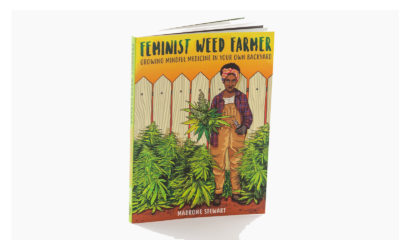
Industry Events
2022 Emerald Cup Draws Diverse Crowd
This year’s legacy cannabis event was headlined by hip-hop star E-40, which helped increase ticket sales and attract people who were otherwise unfamiliar with the event.
It was a familiar scene walking up to the 2022 Emerald Cup Harvest Ball. The sun was poking through rain clouds; the ground was wet and slightly muddy. I regretted not wearing boots. “We’ve almost been cursed,” joked Tim Blake, founder of the Emerald Cup, “but I don’t want to call it that. We need the rain.”
Despite the bad weather, a big crowd turned out on day one. Emerald Cup 2022 sold more single-day tickets at the box office than the total amount of pre-sale tickets sold for the entire weekend. This is the first time in the Emerald Cup’s 19 years that we saw bonafide hip-hop artists in the musical lineup, including The 707’s own E-40 headlining the opening night and Bay Area local Kamaiyah carrying the crowd on the last day. A more diverse musical lineup led to a more diverse crowd of people who were otherwise unfamiliar with the event.

The Harvest Ball 2022 Is Helping Small Farmers
The Department Of Cannabis Control (DCC) and The Emerald Cup have been working together for the past two years to make the event more beneficial to farmers, which includes opening their doors to different aspects of the greater cannabis culture.
“To me, it’s all about unity,” Blake said at a sit-down with the DCC’s Chief Engagement Officer Cassandra Di Benedetto and Deputy Director of Public Affairs Maria Luisa Cesar. “We’re not going anywhere. You guys need us, and we need you. So we have to work together.”
Along with the DCC having its own booth at the Harvest Ball in 2022 where licensees could interact with their team in person, they also led a panel discussion to better understand how the agency is supporting the industry by developing new strategies, resources, technologies and education.
“It’s been great for us to interact with farmers and see their pride in their work,” Di Benedetto says. “We’re here because we believe in a safe, equitable, sustainable, regulated market.”
With more than 150 booths, brands were able to connect directly with customers to bring them some of the best deals of the season in a compliant way and without having to go through a traditional retail storefront.
“A regulated event is a successful event,” Cesar says. “We want to be good partners in making sure that we’re clear about our expectations and also providing good information, good resources and good opportunities to ask us questions.” The newly created role of Chief Engagement Officer allows individuals to connect directly with the department via Zoom as well.
Attendees of the Harvest Ball 2022 found refuge from the rain in the Hall of Flowers Pavilion and the Puffco Pavilion, two of the event’s larger sponsors. Available for purchase included everything cannabis—products, accessories, cultivation equipment, seeds and clones. I spent some time at the Equity Trade Certification booth with Root’d 510 admiring Oakland Extracts, a long-time staple in the industry and Saffy THC, the only Black-owned and Jamaican-owned equity brand in Humboldt County. Another couple of honorable mentions are Sanctuary Farms, especially the fruity terpene profile on their Prickly Pear, and Sense’s Glitter Bomb, which certainly lived up to the name.
Creating Opportunities to Grow Together
Having larger and established brands in the same room as small independent farmers also created an opportunity for customers and licensees from different demographics to connect and learn from each other. While the DCC is currently exploring many different routes to providing relief to our struggling industry, it’s important for the entire community to keep having conversations that keep the ball rolling forward.
“I want to take an opportunity to just really acknowledge the challenges that are being experienced right now in the cannabis market, across the supply chain and also with small and legacy farmers and equity businesses,” Cesar says in response to my question about what the DCC is doing to provide relief to some of these legacy farmers. “I feel very proud of the strides the DCC has made to listen to licensees and to make changes that are responsive to the things that they really need.”
The DCC just adopted a consolidated regulatory package that simplifies regulations and eases some of the burdens small farms and independent brands are facing. “The other thing that I think that we’ve done is push Metric to make some changes that also reflect some of the pain points that our licensees were experiencing,” Cesar says.
Alas, there’s always work to be done, and the DCC knows it.
“There’s a lot that we’ve done but we also acknowledge that there’s a lot more to do, and we’re cognizant of that, and that’s why we think it’s so important to be at these events, to have an individual who’s really interfacing with the community, to have office hours and to make sure that we’re available and accessible.”
While The DCC continues to work towards stabilizing the market, Blake encourages the state to stop looking at the cannabis industry through rose-colored glasses.
“They’re not in the same reality we are,” he says. “They’re not really understanding what’s going on here, the boots-on-the-ground. It took 50 or 60 years for the liquor industry to allow craft breweries and craft vineyards to have direct sales and to do those things, but we don’t have that time. We have a large legacy industry here and we need those direct sales now.”

























